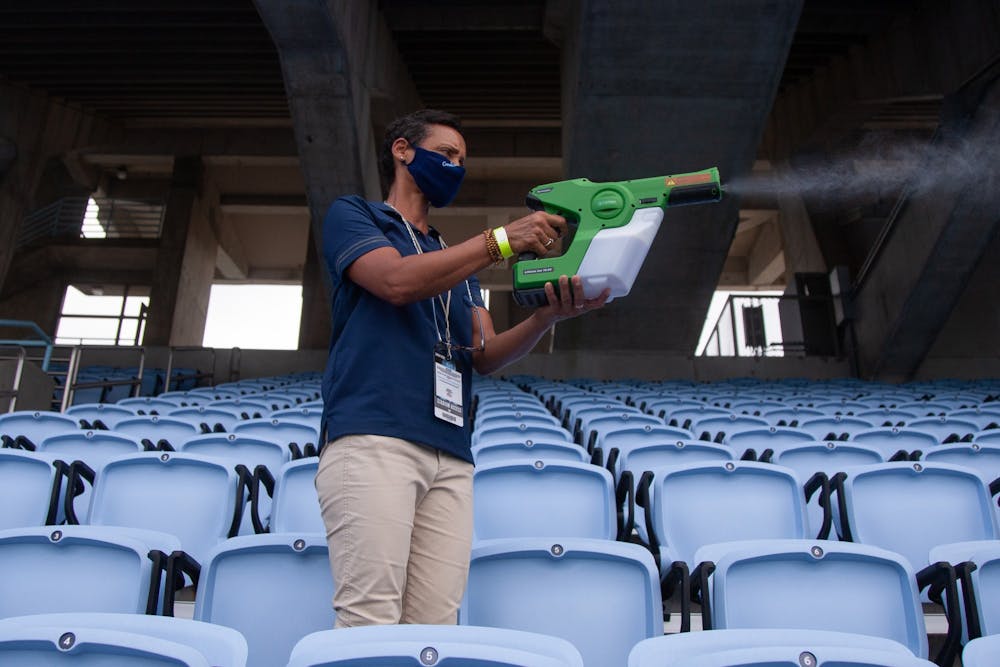Just one week after football returned to Kenan Memorial Stadium, UNC has already hit a COVID-19-related bump in the road. The one non-conference opponent the Tar Heels scheduled, UNC-Charlotte, had to cancel their game Thursday morning due to multiple players being placed in quarantine.
It wasn’t unpredictable — last week, Virginia Tech and other teams across the country had to postpone season openers due to coronavirus clusters — and in some sense, No. 12 UNC’s game against Charlotte being booted from the Tar Heels’ schedule after a positive test left the 49ers roster in quarantine feels almost routine.
“We knew when we decided to play football in this environment that cancellations would be a possibility,” UNC director of athletics Bubba Cunningham said in a statement on Thursday.
During preparation throughout the offseason, UNC athletics put a stoppage on practice twice. First, it followed an announcement of 37 positive tests among players, coaches and athletics staff in July — since then the University hasn’t released testing numbers among athletes separately from the general UNC community. The second time came in the final weeks before kickoff, when UNC put a pause on workouts for five consecutive days following multiple clusters being reported on campus.
For Charlotte, the cancellation came with just three announced positive tests, but contact tracing among the offensive line unit put too many members of their offensive front in quarantine to field a team on Saturday.
The Tar Heels prepared players to move around positionally in the case of a cluster among a position group like what happened with Charlotte, head coach Mack Brown said in a press conference on Aug. 18.
“There’s a few things that COVID has brought out, your player leadership is more important than ever,” Brown said. “The second thing is creating depth and the best way to do that with your best players is to cross-train.”
Canceled games aren’t unheard of in college football. The season typically kicks off in the midst of hurricane season in the Southeast, it isn’t uncommon for some teams to play a game short of the usual 12 due to a storm-related cancellation. Just two years ago, a UNC home date with Central Florida was canceled after Hurricane Florence hit the North Carolina coast.
Still, cancellations in 2020 will likely amount to the most disrupted year in college football since 1918, when a combination of World War I and the Spanish Flu pushed the start of the season to November.




